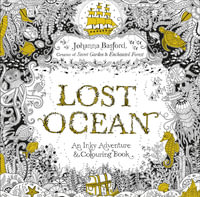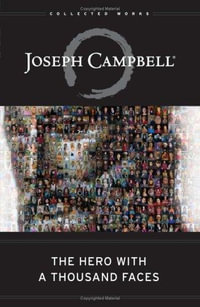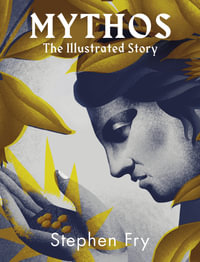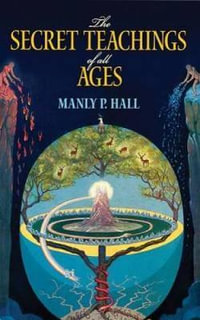Minos and the Moderns considers three mythological complexes that enjoyed a unique surge of interest in early twentieth-century European art and literature: Europa and the bull, the minotaur and the labyrinth, and Daedalus and Icarus. All three are situated on the island of Crete and are linked by the figure of King Minos. Drawing examples from fiction, poetry, drama, painting, sculpture, opera, and ballet, Minos and the Moderns is the first book of its kind to treat the role of the Cretan myths in the modern imagination.
Beginning with the resurgence of Crete in the modern consciousness in 1900 following the excavations of Sir Arthur Evans, Theodore Ziolkowski shows how the tale of Europa-in poetry, drama, and art, but also in cartoons, advertising, and currency-was initially seized upon as a story of sexual awakening, then as a vehicle for social and political satire, and finally as a symbol of European unity. In contast, the minotaur provided artists ranging from Picasso to DA1/4rrenmatt with an image of the artist's sense of alienation, while the labyrinth suggested to many writers the threatening sociopolitical world of the twentieth century. Ziolkowski also considers the roles of such modern figures as Marx, Nietzsche, and Freud; of travelers to Greece and Crete from Isadora Duncan to Henry Miller; and of the theorists and writers, including T. S. Eliot and Thomas Mann, who hailed the use of myth in modern literature.
Minos and the Moderns concludes with a summary of the manners in which the economic, aesthetic, psychological, and anthropological revisions enabled precisely these myths to be taken up as a mirror of modern consciousness. The book will appeal to all readers interested in the classical tradition and its continuing relevance and especially to scholars of Classics and modern literatures.
Industry Reviews
"In this elegant book Ziolkowski creates a panoramic map of Cretan myth in the first half of the twentieth century and of its reception across the arts. Building momentum from the observation that the mythology accruing around Crete and its prehistoric and pre-classical Minoan culture sees a remarkable peak in reception across Europe from around the turn of the century, Ziolkowski catalogues a wide range of artistic engagements with those Cretan figures and
links them back to a straightforward exposition of Modernist aesthetics and its programmatic interests." --Bryn Mawr Classical Review
"In Minos and the Moderns: Cretan Myth in Twentieth-Century Literature and Art, Ziolkowski offers a whirlwind of examples as he traces a modernist revival of Minoan myth." --The Chronicle Review
"The appropriation of Classical Greek myth in modern literature is a familiar theme. But what about the prior Cretan myths, revived so dramatically in the early twentieth century by the archeological discoveries of Arthur Evans? In this remarkably erudite, elegant, and engaging study, Theodore Ziolkowski takes us back to those erotically charged and violent tales relating to King Minos and his progeny, showing us, in beautiful detail, how the tales of Pasiphae
and the Bull, Daedalus's design of the labyrinth, or the flight of Icarus, functioned as foundational narratives of Modernism-whether the modernism of Joyce and Picasso, or of the Surrealist journal
Minotaure and the novels of Marguerite Yournecar. Ziolkowksi's own narrative is itself as absorbing as a novel-a total pleasure to read!" -Marjorie Perloff, Stanford University
"Ziolkowski is one of our most distinguished scholars of modern literature, who, over the past decade or so, has turned his attention to the reception and appropriation of Classical literature by modernist authors. Ziolkowski offers a well-measured and readable mix of exposition, contextualization, analysis and bibliographical guidance which will make this volume accessible to a wide range of readers, from undergraduate students to scholars of both classical
and modern literature." -Duncan Kennedy, University of Bristol
"Ziolkowski covers a remarkable amount of material, from plays and poetry to art and music, from writers and artists as well known as Picasso, Gide, and Auden to those barely known even to specialists. This breadth makes a compelling case for the argument that the Cretan myths hold a special place in modernist culture. Ziolkowski's presentation is also very readable. Each chapter is organized around one or two interpretive patterns which give the material an
argumentative thrust, with the detailed treatment of each work in turn dependent on the overarching interpretive pattern." -Craig Kallendorf, Texas A&M University
"The appropriation of Classical Greek myth in modern literature is a familiar theme. But what about the prior Cretan myths, revived so dramatically in the early twentieth century by the archeological discoveries of Arthur Evans? In this remarkably erudite, elegant, and engaging study, Theodore Ziolkowski takes us back to those erotically charged and violent tales relating to King Minos and his progeny, showing us, in beautiful detail, how the tales of Pasiphae
and the Bull, Daedalus's design of the labyrinth, or the flight of Icarus, functioned as foundational narratives of Modernism-whether the modernism of Joyce and Picasso, or of the Surrealist journal
Minotaure and the novels of Marguerite Yournecar. Ziolkowksi's own narrative is itself as absorbing as a novel-a total pleasure to read!" -Marjorie Perloff, Stanford University
"Ziolkowski is one of our most distinguished scholars of modern literature, who, over the past decade or so, has turned his attention to the reception and appropriation of Classical literature by modernist authors. Ziolkowski offers a well-measured and readable mix of exposition, contextualization, analysis and bibliographical guidance which will make this volume accessible to a wide range of readers, from undergraduate students to scholars of both classical
and modern literature." -Duncan Kennedy, University of Bristol
"Ziolkowski covers a remarkable amount of material, from plays and poetry to art and music, from writers and artists as well known as Picasso, Gide, and Auden to those barely known even to specialists. This breadth makes a compelling case for the argument that the Cretan myths hold a special place in modernist culture. Ziolkowski's presentation is also very readable. Each chapter is organized around one or two interpretive patterns which give the material an
argumentative thrust, with the detailed treatment of each work in turn dependent on the overarching interpretive pattern." -Craig Kallendorf, Texas A&M University

























